Professor Tadeusz Kaczorek, PhD, DSc(Eng)

Scientific Achievements
Tadeusz Kaczorek was born in Elżbiecin in the district of Ciechanow on the 27th of April 1932 to mother Józefa and father Józef from the house of Sankowski. In 1956, he graduated with an MSc in Electrical Engineering from the Warsaw University of Technology. In 1962 he was conferred a doctorate in Technical Science and in 1964 a Doctor of Science degree. In 1971, he was appointed Associate Professor, and in 1974 he was promoted to Full Professor. He has been an employee of Warsaw University of Technology since 1954. During the years 1970-1981, he held the post of Director of the Institute of Control and Industrial Electronics at the Warsaw University of Technology. From 1970 to 1973, he served as Deputy Rector at the Warsaw University of Technology.
He was chosen as a corresponding member of the Polish Academy of Sciences in 1986, and became an actual member in 1988. He has been a full member of the Polish Academy of Engineering since June 1999. In 1987-88 he was the Chair of the Automation and Robotics Committee. During the period 1988-91, he was the head of the PAN Research Station in Rome. For many years, he has been a member of the Central Commission for Degrees and Titles and the Polish Science Foundation. Since reaching retirement age in 2002, Tadeusz Kaczorek has worked as a Professor in the Faculty of Electrical Engineering of the Bialystok University of Technology. The Professor’s principal areas of research are the theoretical analysis of the synthesis of control units and systems. A pioneer of new lines of research, Professor Tadeusz Kaczorek initiated research on externally positive singular 1D and standard 2D linear discrete systems, computing anticipatory systems, fractional linear systems, and multidimensional dynamic systems.
Research Pioneer
Professor Tadeusz Kaczorek pioneered a new class of singular multidimensional discrete and continuous-discrete systems and externally positive singular systems. He also supervised the completion of more than 69 doctoral theses. More than 20 of his students went on to become full professors, 12 of them in the USA and the UK. He has organised and chaired more than 40 scientific sessions during global congresses and international conferences, where he also either chaired or participated as a member of several scientific programme committees.
Honorary Doctor of Gdynia Maritime University
In 2014, Professor Tadeusz Kaczorek was granted the honorary title of Dr honoris causa by Gdynia Maritime University, on the initiative of Janusz Zarębski - Dean of the Faculty of Electrical Engineering, who acted as the promoter. The conferral of the honorary title was supported by the Council of the Faculty of Electrical Engineering (11th December 2014), and the Gdynia Maritime University Senate. Following a review of the Professor’s academic achievements, the granting of the title of Dr honoris causa was also supported by Professor Marian Kaźmierowski (Warsaw University of Technology), Professor Kazimierza Jakubiuka, (Politechnika Gdańska) and Professor Wojciech Mitkowski (AGH University of Science and Technology), the Senates of AGH University of Science and Technology, Gdansk University of Technology, and Warsaw University of Technology. A resolution was passed by the Senate of Gdynia Maritime University on 29 October 2015.
Historic Title
On December 10 2015, during a ceremonial sitting of the Senate of GMU, the honorary title of Dr honoris causa was awarded for the first time in the University's history. The honour went to Professor Tadeusz Kaczorek, DSc(Eng) - an outstanding academic, and leading specialist in automation and ship control theory and actual member of PAN. During the ceremony, a speech was made by Professor Janusz Zarębski, DSc, Eng., who, together with GMU Rector Professor Piotr Jędrzejowicz, DSc, presented the diploma to Professor Tadeusz Kaczorek. Before the close of the ceremony, Professor Kaczorek gave a lecture entitled “A few considerations on the integration of different scientific disciplines in learning and research”.

